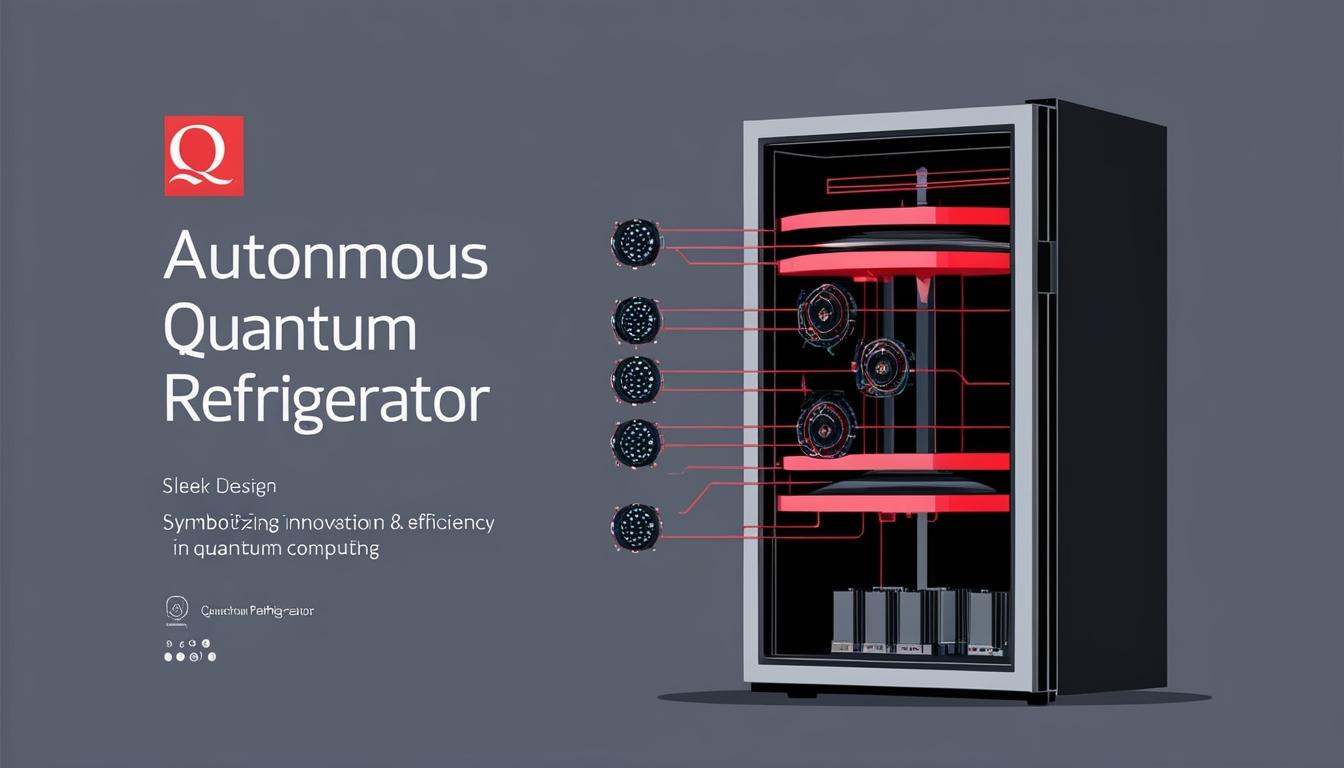A new development in quantum computing has emerged from Chalmers University of Technology in Sweden, where researchers have successfully created a tiny autonomous quantum “refrigerator” designed to minimise errors in quantum computations. This innovative device acts by automatically resetting malfunctioning components of a quantum computer, thereby allowing the system to commence calculations with greater accuracy without necessitating additional hardware or external supervision.
Quantum computers, which utilise qubits as their fundamental units, are currently hindered by high error rates. One significant challenge arises when qubits heat up and become overly energetic, jeopardising the integrity of the data they carry. The conventional method for addressing this issue includes cooling the qubits to restore them to their correct operational state. The team at Chalmers has developed a novel solution wherein the qubits and a more advanced component known as a “qutrit” are employed together to form an autonomous cooling mechanism.
The researchers engineered interactions between two qubits and one qutrit, with one qubit functioning as the target for computation. The qutrit and a second qubit act as the refrigerator, facilitating a process where excess heat is automatically extracted from the target qubit. This cooling action restores the qubit’s temperature and, consequently, its operational state. Simone Gasparinetti, one of the researchers involved, noted that this innovative approach requires significantly less new hardware in comparison with traditional techniques. The device has achieved a remarkable success rate, ensuring the target qubit begins its computations in the correct state 99.97 per cent of the time, surpassing the typical 99.8 per cent accuracy of existing reset methods.
Nicole Yunger Halpern, working at the National Institute of Standards and Technology in Maryland and also part of the project, emphasised the transformative potential of thermodynamic principles in the quantum domain. She explained, “I’m interested in making quantum thermodynamics useful. This arguably useful autonomous quantum refrigerator is our first example.” Brunner, a colleague from the University of Geneva, expressed his satisfaction with the project, commenting on the device's ability to operate autonomously, which enhances its efficiency and versatility.
The researchers' achievement addresses a critical issue in the field, highlighted by Michał Horodecki from the University of Gdańsk. He stated that managing the heat levels in superconducting circuit-based quantum computers is urgent, acknowledging that this experiment could catalyse further innovations. He pointed out that there are numerous proposed concepts for autonomous quantum systems yet to be realised, including quantum engines powered by qubits.
Looking ahead, the researchers are contemplating further applications stemming from their findings. Potential future projects may involve the development of autonomous quantum clocks or even larger quantum computers equipped with diverse functions that operate based on temperature differentials.
This breakthrough embodies a significant step towards overcoming one of the pivotal challenges in the practical application of quantum computing, paving the way for more sophisticated quantum devices and broader industry implications.
Source: Noah Wire Services
